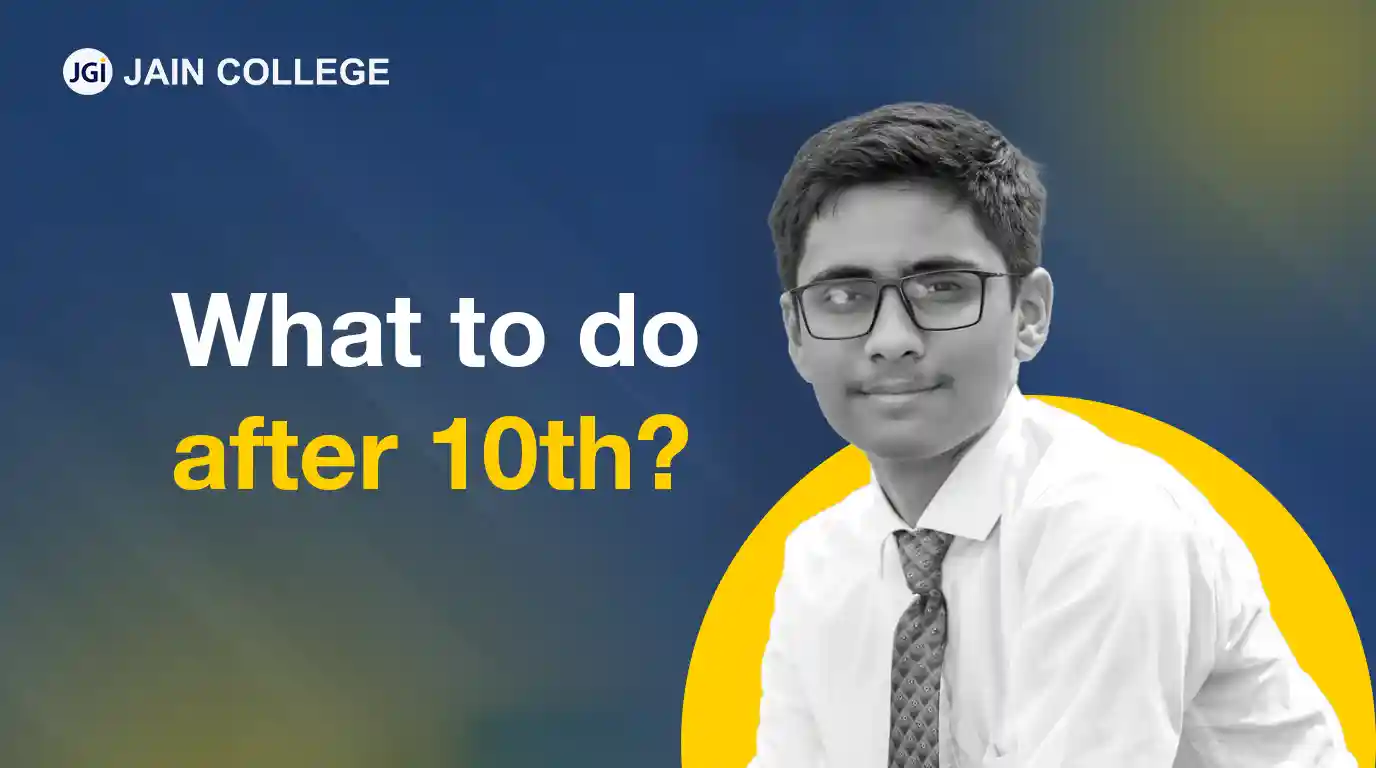
After the 10th grade students have the option to pursue a Diploma or Vocational Education course or continue with 11th and 12th grades from a recognised education board of their choice. For 10th graders who face a dilemma about what to do after the board exams, this blog explores some alternatives. We will highlight popular diploma and vocational courses, education boards for 11th and 12th grades and career options.
Diploma and vocational training education is suited for students who know which career they wish to pursue. After the course, students can choose to start working or pursue a college programme. For instance, after 3 years of a Diploma in Engineering, students can choose to pursue a degree course for which they will get admission from the second year onwards. In the case of vocational training, along with the certification, students may be expected to have certain years of work experience before they become eligible for college courses. The eligibility criteria depend on the college programme.
Diploma programmes balance theoretical knowledge and practical application education in a particular field. Vocational training courses are short-term, hands-on programmes focusing on a specific trade or craft.
| Diploma Programme | Vocational Course | |
| Focus Area | Academic programme with practical training in a specific field. | Hands-on skill training programme in a specific trade or craft. |
| Duration | 3 years | 1-2 years |
| Purpose | To prepare people in technical fields. | To equip people with skills to work in a specific industry or role. |
| Examples | Polytechnic courses, Hotel management, Graphic Design, Event Management, Fashion Design, etc. | Electrician, carpentry, cosmetology, automotive service technician, beautician, business management (IB Career-related Programme), coding, culinary arts, etc. |
| Field | Example Courses | Duration |
| Engineering | Diploma in Mechanical, Civil, Electrical, Computer, or Electronics Engineering | 3 years |
| Design | Diploma in Fashion Design, Interior Design, Graphic Design | 1–3 years |
| Hospitality | Diploma in Hotel Management, Food & Beverage Service | 1–2 years |
| IT & Computers | Diploma in Computer Applications (DCA), IT | 1–2 years |
| Health | Diploma in Medical Lab Technology, Radiology, Nursing | 1–3 years |
| Beauty & Wellness | Diploma in Cosmetology, Hair & Beauty Therapy | 6 months–1 year |
| Agriculture | Diploma in Agriculture, Horticulture, Animal Husbandry | 1–2 years |
Vocational courses can be of 6 months to 2 years duration. In many programmes, they include an internship of at least 1 month.
| Sector | Examples |
| Trades & Technical | Fitter, Electrician, Welder, Mechanic (2-wheeler/4-wheeler), Plumbing |
| IT & Electronics | Hardware Technician, Mobile Repairing, Networking |
| Retail & Sales | Retail Management, Store Operations |
| Beauty & Health | Spa Therapy, Yoga Instructor, Healthcare Assistant |
| Media | Photography, Videography, Animation Basics |
| Fashion & Crafts | Tailoring, Embroidery, Handicrafts |
Several government programmes support vocational training, such as Skill India, National Skill Development Corporation (NSDC), Pradhan Mantri Kaushal Vikas Yojana (PMKVY), and Industrial Training Institutes (ITIs).
There are several choices for students who choose to pursue 11th and 12th grade among popular education boards after 10th grade. Here's a breakdown of the most recognised boards:
PUC is the most popular education board in Karnataka, governed by the Karnataka Department of Pre-University Education. Students can choose to study subjects in one of the three streams –
It is a popular board because the courses are affordable, most widely available and accepted for local competitive exams and international college admissions.
CBSE is a national curriculum and has three streams –
The syllabus for most entrance exams to professional college courses and certification programmes in India is based on the CBSE syllabus. Some of the popular entrance exams are JEE, CA Foundation, and NEET.
The ISC is overseen by CISCE (Council for the Indian School Certificate Examinations). ISC also has three streams –
It lays a strong foundation with the English language and equal emphasis on theory and practical learning.
The IBDP is an international course offered by the International Baccalaureate Organisation. It is an interdisciplinary course with a pedagogy that is grounded in theory and emphasises practical understanding. Students who plan to study in top global universities generally prefer IBDP as the course structure is designed to meet the admission criteria for top college programmes.
The Cambridge AS and A levels correspond with 11th and 12th grades, that is administered by the Cambridge International Education (CIE). It is an internationally recognised programme and students can choose what to study from over 50 subjects. The programme gives students relevant international exposure to thrive in a globalised world.
Choosing a board for the 11th and 12th depends on individual preferences, which will revolve around multiple factors. Some of these are –
After the 10th, students can choose subjects that they are interested in, and these will teach them skills and knowledge for full-fledged college programmes or careers. Students must examine their future interests and shortlist career options, and the education/skill training required for these. This will help them determine which courses will be suited to their interests.

JAIN PU College, a part of the renowned JGI Group, is committed to empowering students with quality education.
Beyond academics, the college ensures its online content reflects the same standard of excellence. Every blog and article is meticulously vetted and proofread by subject matter experts to ensure accuracy, relevance, and clarity. From insightful educational topics to engaging discussions, JAIN PU College's content is crafted to inform, inspire, and add value to its readers, reflecting the institution's commitment to intellectual growth and innovation.
View all Blogs